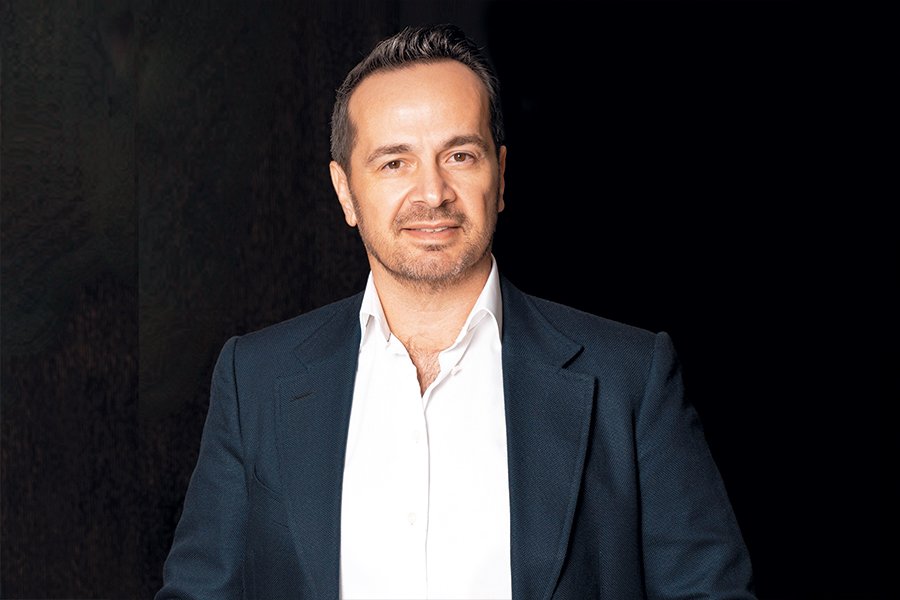
Walid Hajj, Co-Founder & CEO of Lavoya Restaurant Group
“In 2022, in the middle of the pandemic, my partner and I went on to establish Lavoya strongly believing the badly hit sector will recover quickly and bounce back in a big way the moment Covid starts fading away. We are now benefiting from that early action and are set to continue to grow. However, we are aware that the sector today is not what it was 10 years ago. Technology has added a very interesting, but at times challenging factor that we are working hard every day to make work to our benefit. I foresee this technological influence continuing in our sector and the continuous rise of delivery and convenience as a major driver for future growth. I do, however, believe that old-style brick and mortar F&B will never die although the model will need to be adapted and tweaked. It will remain an integral part of any business building effort in the sector,” said Walid Hajj, Co-Founder & CEO of Lavoya Restaurant Group.
Lavoya Restaurant Group operates Barbar and Dave’s Hot Chicken, among others. The plan is to open a total of 31 Dave’s Hot Chicken in 6 countries in the region with Riyadh, Saudi Arabia to follow in Q1 2023 after the UAE and Qatar.
Speaking about how the food and beverage (F&B) landscape has transformed over the past few years, Hajj said, “I think the industry has witnessed nothing short of a revolution during the past 4-5 years helped and expedited by Covid. Technology took over and delivery became an important part of the business supported by solid delivery aggregators. This has transformed the financial model and the big question around – how to make money – in this business in a substantial way.”
Having said that the “experience” part of casual dining has bounced back in a big way after Covid. If this is anything to go by, the old-style brick and mortar F&B will never “die,” even as delivery continues to be an important complementary channel rather than an independent sector. “I strongly believe the idea of creating an F&B brand in the dark is a losing battle in the long-term,” Hajj observed.
The big question, therefore, is how can F&B businesses adjust their overall model to take advantage of these trends and continue to build solid brands?
“For our business we established a significant presence in brick-and-mortar by opening Barbar flagship in the middle of Covid knowing well that once the pandemic is over our guests will want to experience the food and not just eat the food, so-to-speak,” Hajj responded.
“At the same time, we also worked with different aggregators to ensure long-term partnerships with our different brands and to make sure we are present in high delivery zones. To operate efficiently ensuring quick turnaround error free delivery to extend the physical in-store experience to the delivered product.”
Expanding strategically
Even as Lavoya has been experiencing “turbo-charged” expansion recently and will continue to grow “very fast” in the near future, Hajj emphasised on the need to build businesses sustainably.
“We went from 1 store literally 3 months ago to now operating 12 restaurants across our 3 brands and in over 3 markets in the GCC. We will end the year with 14 locations and will double that by end of 2023. We envision a 100-store operation before the end of 2024. Overall, we have solid brands that have proven themselves and a core all-star team that can grow and replicate quickly which is what we aim to get to,” he shared.
“Having that said we believe in building brands and businesses sustainably to ensure resilience in the face of difficulties. For that we invest significantly in building our brands over the long-term and to ensure that the experience associated with the brand must be memorable. Something our guests will always come back for.”
“In addition, from a people perspective we are very big on building a culture at Lavoya wherein our team members are partners and not just employees. They are involved not only in the day-to-day decisions they must make in their respective units, but also are fully aware of the vision of the company and the big decisions we make at a corporate level. This is our way of creating a ‘We Own It” culture that is an essential pillar of our corporate values.”
Overcoming obstacles
Even as Lavoya is aiming to expand and has a phased growth plan in the pipeline in the face of a possible protracted recession pre-planning might be of essence.
“So many challenges face the industry today. Post-Covid globally supply chain has been disrupted. That in addition to rising logistics prices have caused a lot of uncertainty around food cost. That being a major component of every F&B business puts a lot of pressure on us to ensure we manage our businesses efficiently,” Hajj said.
“We keep asking ourselves the same question ‘how do we get more efficient – recession or not’ which is the key to ensure survivability. We challenge every extra charge internally but at the same time we ensure we do not cut corners. Our guest experiences are sacred to us and for that we will do whatever is in our power to maintain it.”
“Having said that, and while you always try to plan ahead, I’m a strong believer in ensuring we execute the best TODAY and be efficient TODAY. If we do our job right TODAY, we will be stronger tomorrow and the day after and that in itself is a guard against bumps along the way, including recessions and macroeconomic slowdowns,” he concluded.